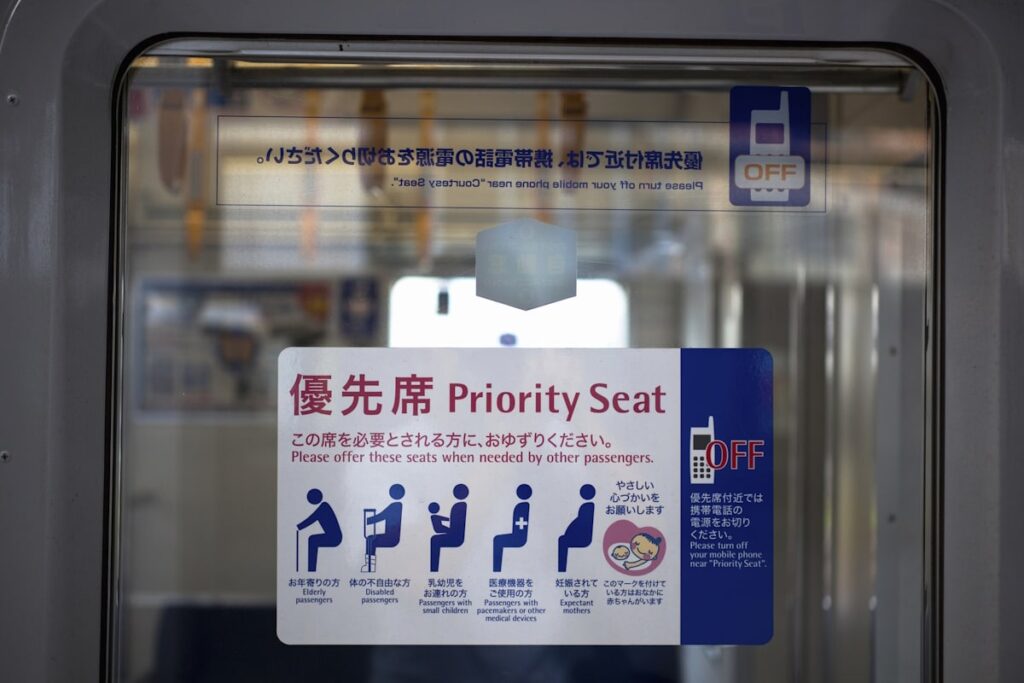[ad_1]
In recent years, Japan has made strides toward increasing accommodations for the disabled. But old attitudes die hard. Recently, one disabled man in Japan used a negative experience with priority seating on the train as a teaching moment.
“You shouldn’t be sitting there”
31-year-old Yamada Chihiro lost both legs and an arm just below the shoulder in an accident at age 20. He has since worn prosthetics. While they’re clearly visible if he wears shorts, when he’s dressed in a suit for work, they are obscured. As a result, people will sometimes mistake him for a physically abled person.
Although he is able to walk freely, standing for extended periods of time can be painful, especially on public transit. So Yamada has found that taking sitting breaks is important.
Writing for J-Cast News, Yamada relates how it was during one of those breaks that a woman sitting opposite him on the train said “You shouldn’t be sitting there.”
Yamada wrote that he felt grateful for this interaction and decided to use it as a teachable moment for the woman and for bystanders.
On the train that day, Yamada was wearing a suit when he sat in one of the reserved seats (yūsenseki). These are the seats set aside for people in need, like disabled people, pregnant people, and the elderly. A middle-aged woman sat across from him. He could feel her staring at him for two or three stops along the ride. But eventually, she stood up and approached him, and said “This isn’t where you should be sitting, move to another seat.”
Yamada pulled out his physical disability certificate (shintai shōgaisha techō) to show the woman. He explained his disability rating according to the certificate. After she realized that he did in fact belong there, the woman’s apology was loud enough for the entire train car to hear.
But that wasn’t the end of the encounter.
Documentation and Symbols

The Ministry of Health, Labour, and Welfare oversees the physical disability certificate system. Each local municipality issues the certificates. It has certification given in levels from 1 to 6. Similar certificates are issued for people with mental or intellectual disabilities, as well as disabled children.
Per the ministry’s reports, as of 2022, there are an estimated 4,910,000 people with Physical Disability Certificates. There are about 2.5 million holders of the other types of certification.
A help mark is a mark consisting of a white cross and white heart on a red background. The Tokyo Metropolitan Government in collaboration with the Red Cross designed it. It is used to indicate that the bearer may require medical assistance in certain situations.
The help mark has unfortunately also spawned tasteless imitation. Last October, we covered the case of singer-songwriter Shiina Ringo designed merch that strongly resembled the design.
Meanwhile, a maternity mark is another simple design worn by people who are pregnant, as a way of quietly asking for consideration, including for priority seats on trains or buses like the one Yamada was sitting in when the woman spoke up.
The Role of Outspoken Bystanders

As noted earlier, Yamada also felt grateful for this interaction on the subway.
He finds it easy to ask someone for the priority seat if he must. But as he put it, others might not feel that confidence. It is also not common for someone in the woman’s position to feel that they should call out someone who might be taking a priority seat from someone who actually needed it.
“Because of people like you who pay attention, those who really need to sit here can sit. Thank you for speaking up,” he told her.
Yamada uses priority seating when he needs it. However, he also tries to keep an eye open for those who may need it more than him.
“As a kid, I was close to my grandmother. So my feeling of wanting to offer a seat to my elders is something I’ve had since childhood. Ever since I lost my limbs at age 20, I’ve met many more disabled people. I’ve felt that there are still more people who ought to be sitting in these reserved seats. Not just physically disabled people like me, but others who might have invisible disabilities, be wearing a help mark or a maternity mark. There are many for whom those seats are necessary.”
Conclusion
Yamada remarks that it helps if people like the woman on that train who spoke up intervene on behalf of those who genuinely need the priority seating but might not be able to speak out.
What he feels is also important, whether on the train or on the bus, is to look around and make sure that there’s nobody else who might be in greater need of the seat. In doing this, he argues, we can create “barrier-free hearts” by which we can make riding the bus or taking public transit a happier experience for all.
What to read next
Olympic Scandal: Musician Oyamada Keigo’s Horrific Abuse of Disabled Classmates
Sources
[ad_2]
Source link


